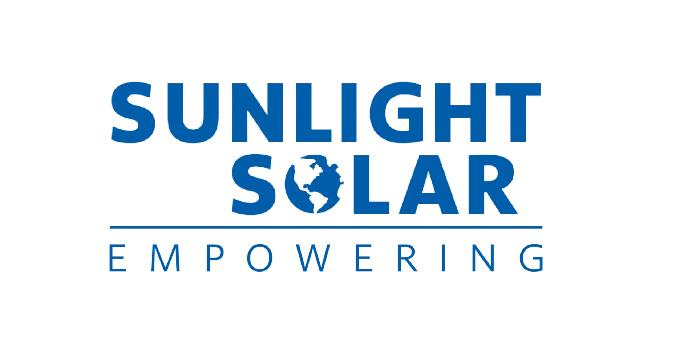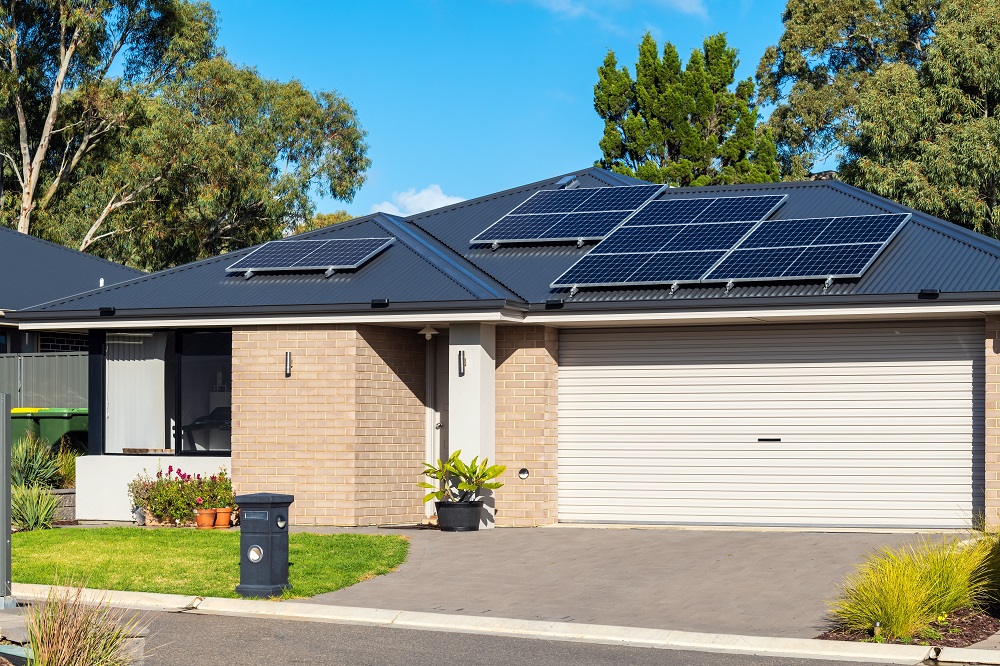The simple answer is yes, solar panels can provide enough power on sunny days. However, there are a few factors that must be taken into account first to give a proper response. The first is exactly what you want your solar panels to do?
Do you just want something to help offset the costs? Or maybe be able to run one product solely on solar, such as a pool or charging station? Do you want to be completely off the grid and have enough power to not rely on the electricity company?
The second is how much money you have and are willing to spend. Solar panels can be costly, and if you want to have enough solar panels to only run your house off of them, you will need a lot of money for the initial investment. With the right space and money, it is entirely possible to have enough power on sunny days to run whatever you may want on solar alone.
Let’s look a little deeper into some important factors.
Using Your Solar Panels Effectively
How Many Panels Do I Need?
There are a few factors that determine how many panels you need. These include:
- How much sun do you get in the area you want the panels
- How many sunny days on average you get throughout the year
- How much power do you use a day
- If you want batteries to store the power
This can make it a headache to try and determine what is needed. However, if you just want a basic estimation, around 150 watts per square meter of your home per year is a good guideline.
Amount of Electricity You Use
The amount of electricity you use is one of the main factors in determining your solar array requirements. If you are only watching tv and turning on a few lights throughout the day, you might not need much power at all.
However, if you have a lot of technology always running and a big family, you might need a much larger solar system.
How Much Sun The Panels Get Throughout the Day
If you are placing your solar panels in a place that only gets sun through half the day, you are going to need more panels to make up for the lack of sun. It is best to place your panels facing south, in an area unobstructed by trees or other items so they can get the full amount of sun.
However, depending on where you live, this is not always an option. Your solar panels can still be useful in this case, but you will have to get more to reap the best benefits.
The Efficiency of the Panels
There are two main types of panels that are available. These are monocrystalline and polycrystalline.
In theory, monocrystalline panels are better, as they are more efficient and much more durable. However, they are very costly for an initial investment. They are often attached with silicon, which is also expensive, but they can be up to 25% efficient and can handle a lot of temperature changes.
Polycrystalline panels, on the other hand, are not as efficient. They aren’t made with uniform structures like with monocrystalline, and therefore are unable to get much past 16% efficiency. They are also the same size as their monocrystalline counterparts, so you need more to get the same efficiency.
At first glance, the first panels are the better ones, but not everyone can afford the cost. While they do save you more money in the long run, that first investment can take a lot of money that someone may not be able to afford.
If you have a lot of space, but not necessarily the money to pay for monocrystalline panels, getting polycrystalline panels might be a good option. They are fairly easy to remove later down the road if you do decide to upgrade, and you can easily buy twice the panels for a fraction of the cost.
Electricity Storage
Another factor is whether or not you are going to store your electricity. Investing in battery banks will allow you to use solar panels throughout the year, and throughout the night without having to rely on your local grid.
The size of your bank along with the amount of electricity you use determines the length you can keep using power after the solar panels stop creating electricity.
Battery banks are easily the most expensive part of a solar system, with a singular battery costing a couple of thousand dollars. If you have a lot of money dedicated to your solar system, focusing on the amount of storage you need is a good start, as you can always add more panels down the line.
However, if you can’t afford the batteries, your solar panels will still work, but they are only really active during the sunny parts of the day. The rest of the time, you will be pulling from the grid.
Should I Get Solar Panels?
Average Cost Offsets Throughout the Year
During summer, you will get the most out of your solar panels than you will during winter when it is often cloudy and the days are shorter. When estimating the amount of money you will save with solar panels, make sure to take into account your total costs throughout the year and how much the panels will save you, instead of just during the summer.
This will allow you to get an accurate idea of not only the correct amount of panels you need but also the amount of money you will save and how long it will take to pay off that initial investment.
Cost of Electricity in Your Area
If your city charges a lot for electricity, it may be worth investing in solar panels to knock down some of that cost. When you are deciding on whether or not you want solar, estimate the cost of your electricity per year compared to how much you will save and your initial investment with solar panels.
Doing this will show you how long it will be until your solar panels begin to pay for themselves, and you can determine if that is worth it to you.
At Sunlight Solar, we offer $0 down financing to keep your solar panels affordable. Contact us today! We are located in Bend and Portland, OR, Colorado Springs, New Haven, CT, and Marlborough, MA.


One Comment on “Do Solar Panels Generate Enough Power on Sunny Days?”
We live in Bend Oregon and we are interested in meeting with one of your representatives to talk about installing solar panels on our home. Our phone # 2086604994.
Name Ranotta McNair,